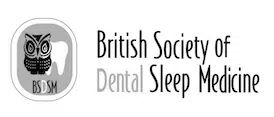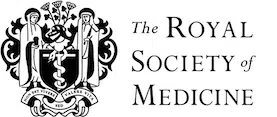Sleep apnoea, a condition characterized by repeated interruptions in breathing during sleep, is often associated with various symptoms such as daytime sleepiness, fatigue, and difficulty concentrating. However, many people may not realize that one of the lesser-known effects of sleep apnoea is its connection to headaches. In this article, Dr. Aditi Desai, an expert in dental sleep medicine and President of the British Society of Dental Sleep Medicine (BSDSM), shares her expert insights on the relationship between sleep apnoea and headaches, including how sleep disturbances can lead to chronic headaches, and what can be done to manage this issue effectively.
What is Sleep Apnoea?
Before delving into the specifics of how sleep apnoea relates to headaches, it’s important to understand what sleep apnoea is. Sleep apnoea occurs when the muscles in the throat relax excessively during sleep, causing partial or complete blockage of the airway. This leads to pauses in breathing, often lasting for several seconds, which can disrupt sleep and result in low oxygen levels in the body.
There are two primary types of sleep apnoea:
- Obstructive Sleep Apnoea (OSA): The most common form, caused by the relaxation of the muscles in the throat.
- Central Sleep Apnoea: A less common form, occurring when the brain fails to send the proper signals to the muscles that control breathing.
Sleep apnoea affects millions of people worldwide, yet it often goes undiagnosed because many individuals may not be aware of their breathing interruptions during sleep. As a result, the condition can go untreated for years, contributing to numerous health problems, including headaches.
Can Sleep Apnoea Cause Headaches?
The link between sleep apnoea and headaches is a topic that has garnered growing attention in recent years. We will seek the answer to ‘Can sleep apnoea cause headaches?’ Many individuals with this condition often complain of frequent morning headaches, particularly those with moderate to severe cases of the disorder. These headaches are typically dull and persistent and can be a result of the oxygen deprivation that occurs during the sleep cycle.
Dr. Aditi Desai explains that sleep apnoea and headaches can occur due to the following reasons:
-
Reduced Oxygen Levels
During apnoeic events, when breathing stops for several seconds or even minutes, the oxygen levels in the body drop. This can lead to a condition called hypoxia (low oxygen levels), which triggers the brain to release inflammatory substances that can cause pain and discomfort, leading to headaches.
-
Increased Blood Pressure
Sleep apnoea is often linked to high blood pressure. The frequent drops in oxygen levels during apnoeic events can place extra strain on the cardiovascular system, causing blood pressure to rise, which may contribute to headaches.
-
Sleep Fragmentation
Individuals with sleep apnoea frequently experience fragmented sleep due to breathing interruptions. This disrupted sleep cycle can prevent the brain from reaching deeper, restorative stages of sleep, leading to a higher likelihood of waking up with a headache.
-
Tension and Muscle Strain
The muscle strain caused by the body’s effort to resume breathing during apnoeic events can also contribute to tension headaches, which are often felt in the neck, temples, or around the eyes. Additionally, the effect of squeezing and clenching during sleep, which is often associated with sleep apnoea, can exacerbate headaches. This is particularly relevant for individuals who also suffer from Temporomandibular Joint Disorder (TMD) and Sleep Bruxism (SB), where the involuntary grinding of teeth and clenching during sleep can further strain the muscles, leading to a higher frequency of headaches.
In many cases, these headaches are not just mild discomforts; they can become chronic and persistent, impacting daily functioning and overall quality of life. So, can sleep apnoea cause headaches? People who have been living with undiagnosed or untreated sleep apnoea often don’t realize that the headaches they are experiencing are linked to their sleep disorder.
Can Lack of Sleep Cause Headaches and Dizziness?
Lack of sleep is a well-known trigger for various health problems, and one of the most common issues people face when they are sleep-deprived is headaches. Chronic lack of sleep can lead to a condition known as sleep deprivation, which is known to cause both headaches and dizziness. Dr. Aditi Desai emphasizes that sleep apnoea itself is a major contributor to lack of sleep and headaches.
Dr. Desai explains that lack of sleep disrupts the body’s natural balance, triggering physiological changes that lead to headaches. For example:
- Increased Sensitivity to Pain: Sleep deprivation increases the body’s sensitivity to pain, making headaches more intense and more frequent.
- Impaired Pain Regulation: Lack of sleep impairs the body’s ability to regulate pain, making it harder for the brain to manage headache symptoms effectively.
- Reduced Cognitive Function: Sleep deprivation can cause cognitive dysfunction, leading to a higher likelihood of developing tension headaches as the brain struggles to function optimally.
So, can lack of sleep cause headaches and dizziness? When sleep apnoea causes frequent awakenings throughout the night, the resulting lack of restorative sleep can lead to both headaches and dizziness upon waking. This dizziness can be a result of low blood oxygen levels, dehydration, or an imbalance in the autonomic nervous system caused by poor-quality sleep.
What Helps Headaches from Lack of Sleep?
Managing lack of sleep and headaches requires a multifaceted approach, particularly when sleep apnoea is a contributing factor. Dr. Aditi Desai suggests several strategies to help alleviate these headaches:
Proper Diagnosis and Treatment of Sleep Apnoea
The first and most crucial step in managing headaches related to sleep apnoea is to seek proper diagnosis and treatment. Dr. Desai emphasizes that treating the root cause, sleep apnoea, can significantly reduce the frequency and severity of headaches. Common treatments for sleep apnoea include:
- Mandibular Advancement Devices (MADs): Oral appliances designed to reposition the jaw and tongue to keep the airway open.
- Surgical Interventions: In some cases, surgical options may be considered if other treatments are not effective.
By addressing the underlying issue of sleep apnoea, these treatments help restore proper sleep quality, which can lead to a reduction in headaches.
Improving Sleep Hygiene
In addition to treating sleep apnoea, Dr. Desai advises individuals to practice good sleep hygiene. This includes:
- Maintaining a Regular Sleep Schedule: Going to bed and waking up at the same time each day helps regulate the body’s internal clock.
- Creating a Sleep-Friendly Environment: Keeping the bedroom dark, quiet, and cool can promote deeper, more restorative sleep.
- Limiting Stimulants: Avoiding caffeine, alcohol, and heavy meals close to bedtime can prevent sleep disruptions.
Managing Stress and Tension
Stress is another common trigger for headaches, particularly tension headaches. Dr. Desai suggests incorporating stress-reduction techniques into daily routines, such as:
- Relaxation Exercises: Practices like deep breathing, yoga, and meditation can help calm the mind and reduce muscle tension, leading to fewer headaches.
- Regular Exercise: Physical activity can promote better sleep, reduce stress, and prevent tension in the neck and shoulders.
Hydration and Diet
Dehydration can often exacerbate headache symptoms, especially in individuals with sleep apnoea. Dr. Desai recommends staying well-hydrated throughout the day to reduce the likelihood of headaches. Additionally, maintaining a balanced diet with adequate vitamins and minerals, particularly magnesium, can help prevent tension headaches and migraines.
Seeking Professional Headache Treatment
For individuals with persistent headaches, Dr. Desai advises consulting with a healthcare provider who specializes in headache management. A healthcare professional may recommend treatments such as prescription medications, over-the-counter pain relief, or physical therapy to alleviate headache symptoms and improve overall quality of life.
 Lack of Sleep and Headaches: Addressing the Issue Holistically
Lack of Sleep and Headaches: Addressing the Issue Holistically
When it comes to lack of sleep and headaches, it’s important to address both the symptoms and the underlying causes. Dr. Desai emphasizes that a comprehensive approach is necessary for effectively managing headaches from sleep apnoea. By treating sleep apnoea, practicing good sleep hygiene, reducing stress, staying hydrated, and seeking professional help when necessary, individuals can reduce the frequency and intensity of their headaches and improve their overall health.
The connection between sleep apnoea and headaches is a significant yet often overlooked issue. Dr. Aditi Desai’s expert insights highlight the importance of recognizing the link between these two conditions and taking proactive steps to address both. Sleep apnoea and headaches often go hand in hand, and managing one can have a positive impact on the other.
If you suffer from sleep apnoea and experience frequent headaches, seeking professional diagnosis and treatment is essential. With the right interventions, including appropriate sleep apnoea treatments, lifestyle adjustments, and stress-management techniques, it is possible to reduce the frequency and intensity of headaches, improve your sleep, and regain control over your overall health.








